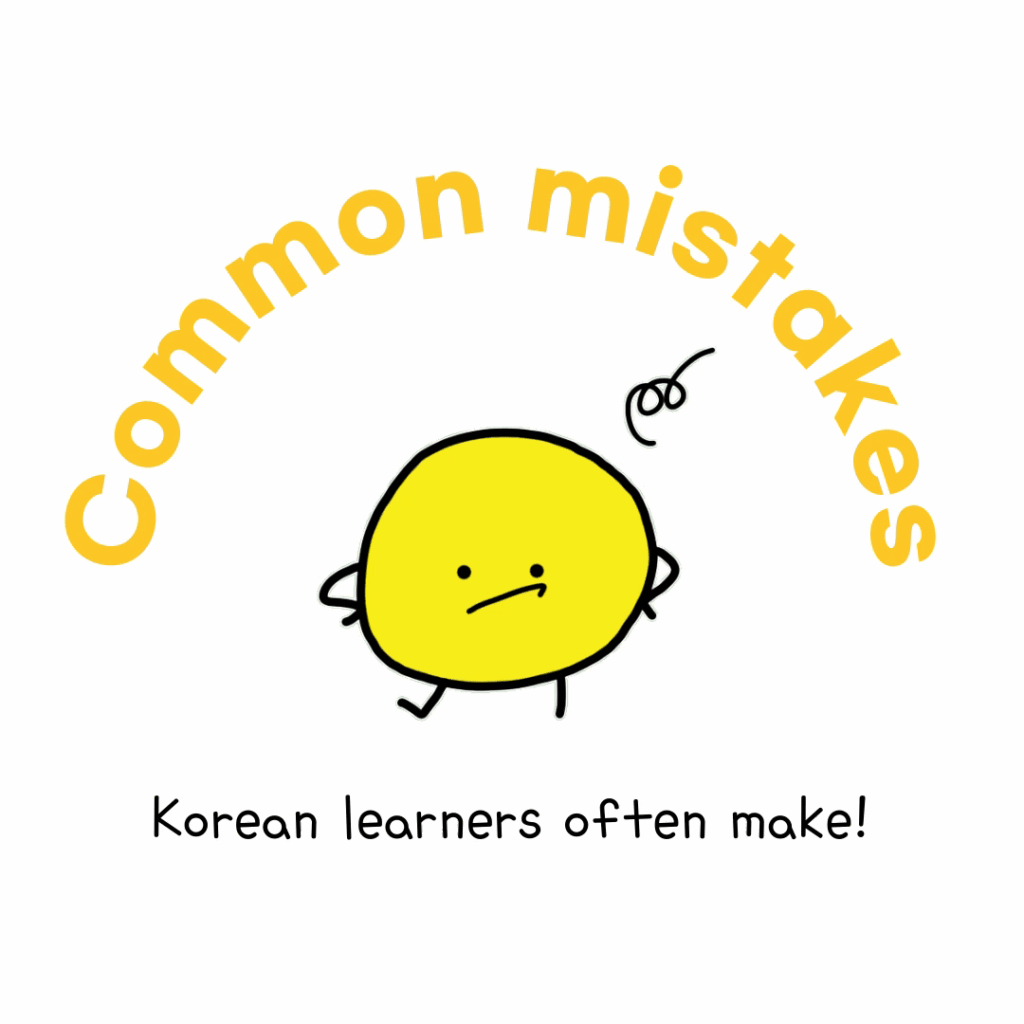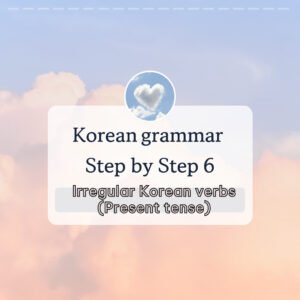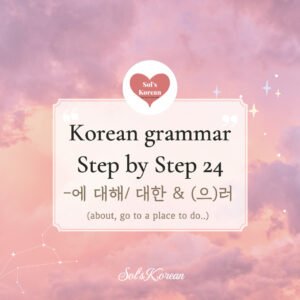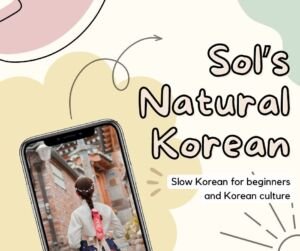Top3 Korean common mistakes that Korean learners make! #1
Hello Guys! In this post, we’ll explore some of the most common mistakes Korean learners make and provide tips and examples to help you navigate these tricky areas. Whether you’re a beginner or an advanced learner, these insights will enhance your understanding and help you communicate more naturally and effectively in Korean. 😉
Korean common mistakes Korean learners often make #1
(1) 좋아요 vs 좋아해요
So we use both to mean “like” very commonly!
“I like you”: 너 좋아 / 너 좋아해 (informal)
But there are some mistakes Korean learners often make!
좋아요: This is used to mean “like” primarily when the subjects are “I” or “you.
So when the subject is a third party, we can’t use 좋아요 to mean “like.”
She likes a dog: 강아지를 좋아요 (X), 강아지를 좋아해요 (O).
He likes me: 걔는 나를 좋아요(X), 걔는 나를 좋아해요 (O).
싫어요 / 싫어해요 (don’t like) works the same way!
She doesn’t like cookies: 쿠키를 싫어요(X), 쿠키를 싫어해요(O)
And we also use different particles for each one!
Guess which one is right 👀
<I like cheesecake>
– 치즈 케이크( ) 좋아요
– 치즈 케이크( ) 좋아해요
The answer
– 치즈 케이크가 좋아요
– 치즈 케이크를 좋아해요
Use 이/가 particles with 좋아요 and 을/를 particles for 좋아해요!!
Let’s test! Try to translate these:
(1) My friends liked BTS a lot.
(2) My mom doesn’t like snacks(간식)
(3) He liked me for a long time(오랫동안)
(4) I like my new room(새 방)
The answer
(1) 내 친구(는) BTS를 엄청 좋아해. (좋아요 X)
(2) 우리 엄마(는) 간식을 싫어해. (싫어 X)
(3) 걔는 나를 오랫동안 좋아했어. (좋았어 X)
(4) 나는 내 새 방이 좋아 / 나는 내 새방을 좋아해
Lastly, 좋아요 has an additional meaning, which is “to be good” 😊
This laptop is good (it works well): 이 노트북 좋아요!
This cosmetic product is good: 이 화장품 좋아요!
(2) How to express “she” or “He” in Korean
Have you learned that “she” is 그녀 and “he” is 그?
In Korean, it’s uncommon to use 그 (he) and 그녀 (she) in casual speech.
Instead, these alternatives are more commonly used!
그 사람 (that person), 그 여자 (that woman), 그 남자 (that man)
He/She is kind: 그 사람은 친절해요.
She is a teacher: 그 여자는 선생님이에요.
He is my friend: 그 남자는 내 친구예요.
Formally
그분 (that person) or 그쪽 (that side/person): Polite and respectful.
그쪽 is also commonly used as a polite way to say “you”.
She/he is my boss: 그분은 제 상사예요.
What is your name? : 그쪽은 성함이 어떻게 되세요?(very polite)
What is your job? : 그쪽은 직업이 어떻게 되세요? (very polite)
When does she/he come? : 그 분은 언제 오신데?
Informally
걔 (super casual!!) only use with your close friends!
Alternatively, you can use 얘 as well. 얘 refers to “this person” (closer to you), while 걔 refers to “that person” (a bit farther away).
You’ll notice that 걔 and 얘 are really commonly used in informal speech.
He/She is funny: 걔 웃겨.
He is quite cute : 걔 꽤 귀여워
*informally, we tend to omit subject particles!
Who is he?: 얘는 누구야?
What’s with this person?: 얘는 뭐야?!
(3) 보고싶다 vs 그립다
Another common mistake that Korean learners make is mixing up 보고싶다 and 그립다.
When the object is not a person, you can only use 그립다.
To say ” I miss Korea”, it should be : 한국이 그리워요. (한국이 보고싶어요 X)
I miss my hometown: 고향이 그리워요.
Do you miss my jokes?!: 내 농담이 그리워? *농담:jokes
You can use 그리워요 when you are missing someone too!
But, 그립다 implies a deeper, nostalgic longing.
I miss my old friends: 옛 친구들이 그리워.
* This suggests a deep sense of nostalgia for past relationships and the times shared together.
I miss my grandparents: 할머니, 할아버지가 그리워요.
* While 보고싶어요 can be used, 그리워요 adds a layer of emotional depth, reflecting fond memories and a sentimental attachment.
And just like “좋아해요”, when the subject is not “I” or “You,” the verb conjugation changes.
I miss you: 너(가) 보고싶어.
She misses you: 걔는 너를 보고 싶어해.
I miss my dog: 우리 강아지(가) 보고싶어.
My mom misses our dog: 우리 엄마는 강아지를 보고 싶어해.
Do you miss him?: 너는 걔가 보고싶어?
So, when the subjects are “I” or “You,” we use 보고싶어(요) with the particles 이/가.
When it’s a third party, we use 보고 싶어해(요) with the particles 을/를.
It works the same way with 그리워요:
I miss my mom’s food: 엄마 음식이 그리워
My friend is missing her boyfriend: 내 친구는 남자친구를 그리워해.
When the subjects are “I” or “You,” we use 그리워(요) with the particles 이/가.
When it’s a third party, we use 그리워해(요) with the particles 을/를.
In summary,
(1) 보고싶다 is only used when you miss a person. For anything else, we use 그립다. While 그립다 can be used for both people and things, it conveys a deeper sense of longing and nostalgia.
(2) when the subject is a third party, we change their form.
– When subjects are “I” or “You“
“보고싶어(요)” and “그리워(요)”
– When subjects aren’t “I” or “You”
“보고싶어해요”and “그리워해(요)”





